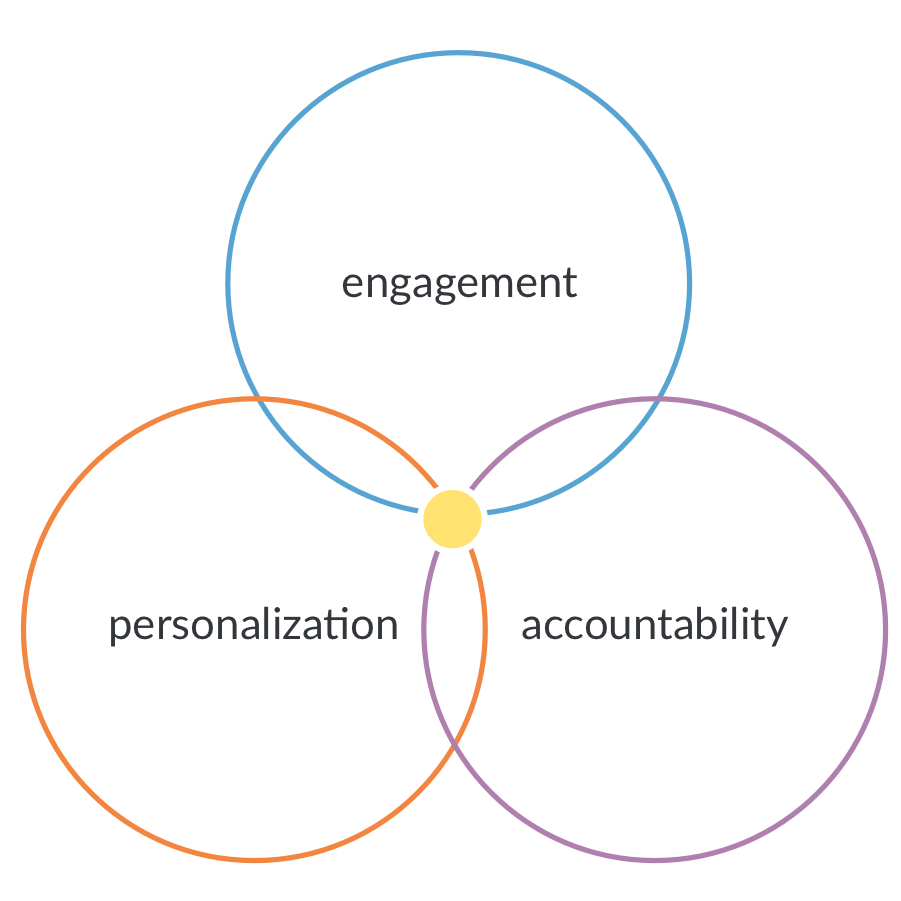Overview
About the project
Team EvolvEd is working on a capstone project and is comprised of five students in the Masters of Educational Technology and Applied Learning Sciences (METALS) program at Carnegie Mellon University. Together with a leading producer of educational content and technology, EvolvEd is working to inform features for the next iteration of a reading intervention program. The areas of focus for this project are: student motivation, student accountability and personalization of the student experience.
Hunt Statement
Through analyzing student interactions with the program and its ecosystem, we will design learner-centered features aimed at improving student outcomes, engagement, and accountability in phonics, personalized for various types of struggling readers.





